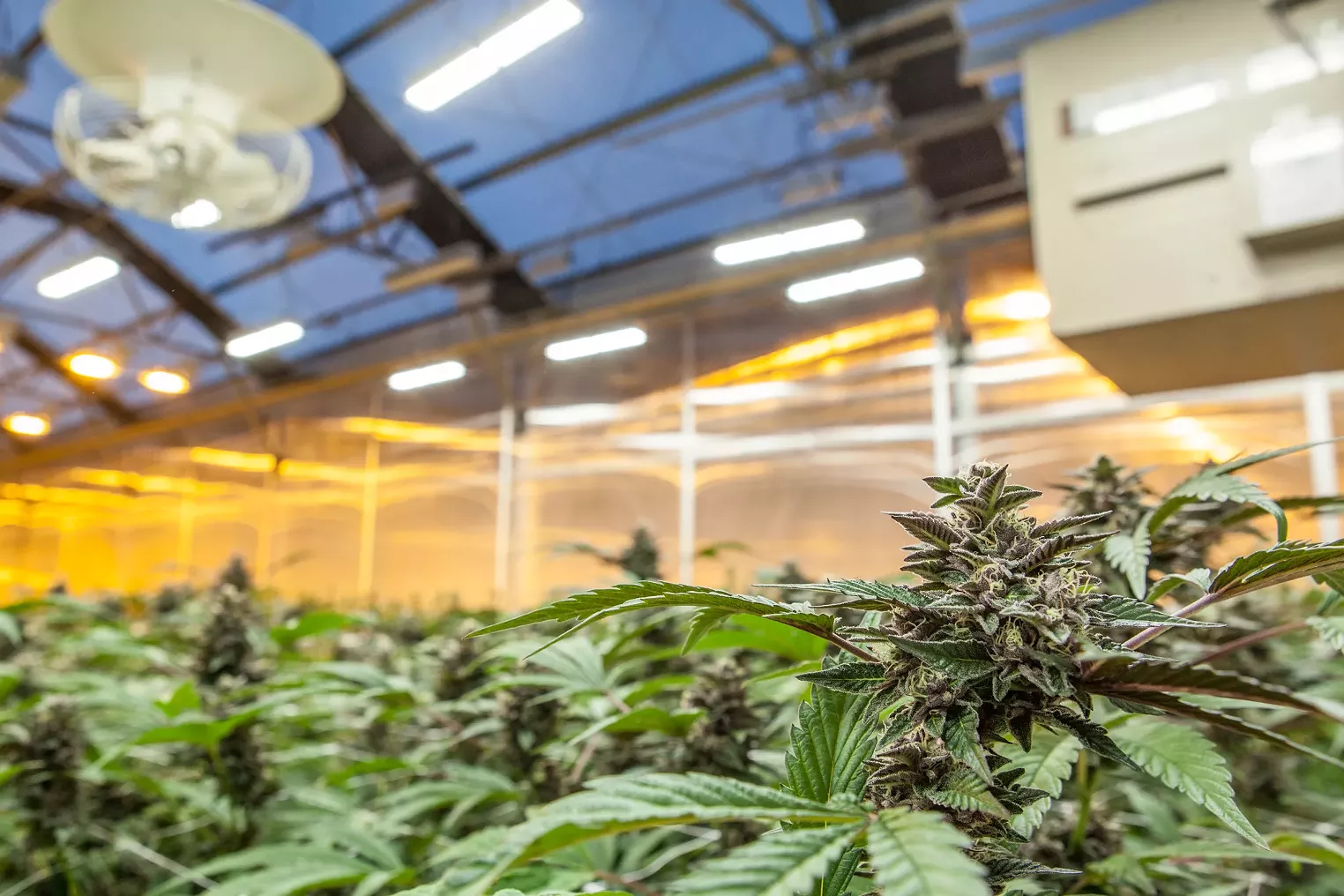Colorado reassesses marijuana grow taxes ahead of federal legalization
[ad_1]
Colorado marijuana regulators are reassessing taxes on wholesale marijuana transactions as the likelihood of federal legalization increases.
Bills proposing federal legalization of marijuana are still a long way from being passed by Congress, but the Colorado marijuana industry and state officials believe it’s more about when, not so. Federal legalization measures could include excise taxes on recreational marijuana production or wholesale transactions of up to 25 percent, but Colorado currently imposes a 15 percent excise tax on the same. . As one of the six states that allow retail marijuana to already have an excise tax on wholesale transactions, this could put Colorado growers at a disadvantage, according to marijuana business owners.
House Bill 1301, a successful 2021 bill that relaxes commercial marijuana outdoor growing laws, included language requiring the Colorado Marijuana Law Enforcement Division to review the rules and laws existing taxes for the wholesale recreational marijuana grow market in an effort to be competitive if marijuana is legal under federal law.
“You don’t want crops to flee Colorado for more tax-efficient states,” warned Paul Julian, lawyer for the Nuvu Pharma dispensary chain, a MED committee at a meeting on Oct. 18.
Vertically integrated marijuana companies that produce and sell marijuana could move production elsewhere if wholesale taxes are too high compared to Oregon, California or another newer state to retail marijuana, a added Julian.
In accordance with the requirements of HB 1310, MED has established a committee that will prepare a report of recommendations for Colorado’s tax rate on wholesale marijuana transactions. The majority of the committee members representing the pot industry want to reduce or eliminate the 15 percent excise tax, but it’s not a small piece of change for the state. According to the Colorado Department of Revenue, the 15% excise tax on recreational marijuana was responsible for nearly $ 101.5 million in 2020.
If wholesale taxes are reduced, the Colorado legislature could replace that revenue with higher sales taxes, according to Bia Campbell, a partner at consultancy firm VS Strategies, a branch of marijuana law firm Vicente Sederberg.
“We don’t want to put the state in a position where it won’t receive this [funding]”Campbell said at the Oct. 18.” For me, the answer to that is sales taxes. If we get rid of the excise taxes on wholesalers and shift the proceeds to sales taxes, we’re going to solve a lot of the issues that other people have already raised on this call. And that would be a change the Colorado legislature could make in 2023. â€
Interstate commerce could also be on the horizon if federal legalization occurs, and the establishment of competitive tax and production rules would further protect Colorado marijuana companies, according to Marijuana Industry Group executive director Truman Bradley. Production limits and retooling of state rules would be one way to further protect Colorado producers, he said.
“There are companies and industries that [for federal legalization], and we like to think of ourselves as a big industry, but we’re not. We need to talk about a really deliberate rollout when it comes to interstate commerce, â€Bradley said at the MED meeting. “Some people think ‘federal legalization? Boom. Play. ‘ But I have concerns about what that does to our state farmers. Obviously, there will be a federal tax. ”
The Oregon legislature passed a law in 2019 authorizing the state governor to enter into agreements with other states for interstate marijuana trade. Ean Seeb, political adviser to Gov. Jared Polis on marijuana policy, told the MED committee that there had been conversations about a proposed Interstate Marijuana Trade Bill in Colorado, and that a could be presented at future legislative sessions.
Although Colorado has a strong lead in marijuana production and retail sales compared to the majority of the country, national legalization and interstate commerce could potentially hurt Colorado’s status as a big fish, Shannon Fender argued. director of public affairs for the Native Roots dispensary chain.
“I don’t think it’s inevitable that interstate commerce makes Colorado more competitive,” she said, “and I think it’s something this task force needs to look at.”
[ad_2]


